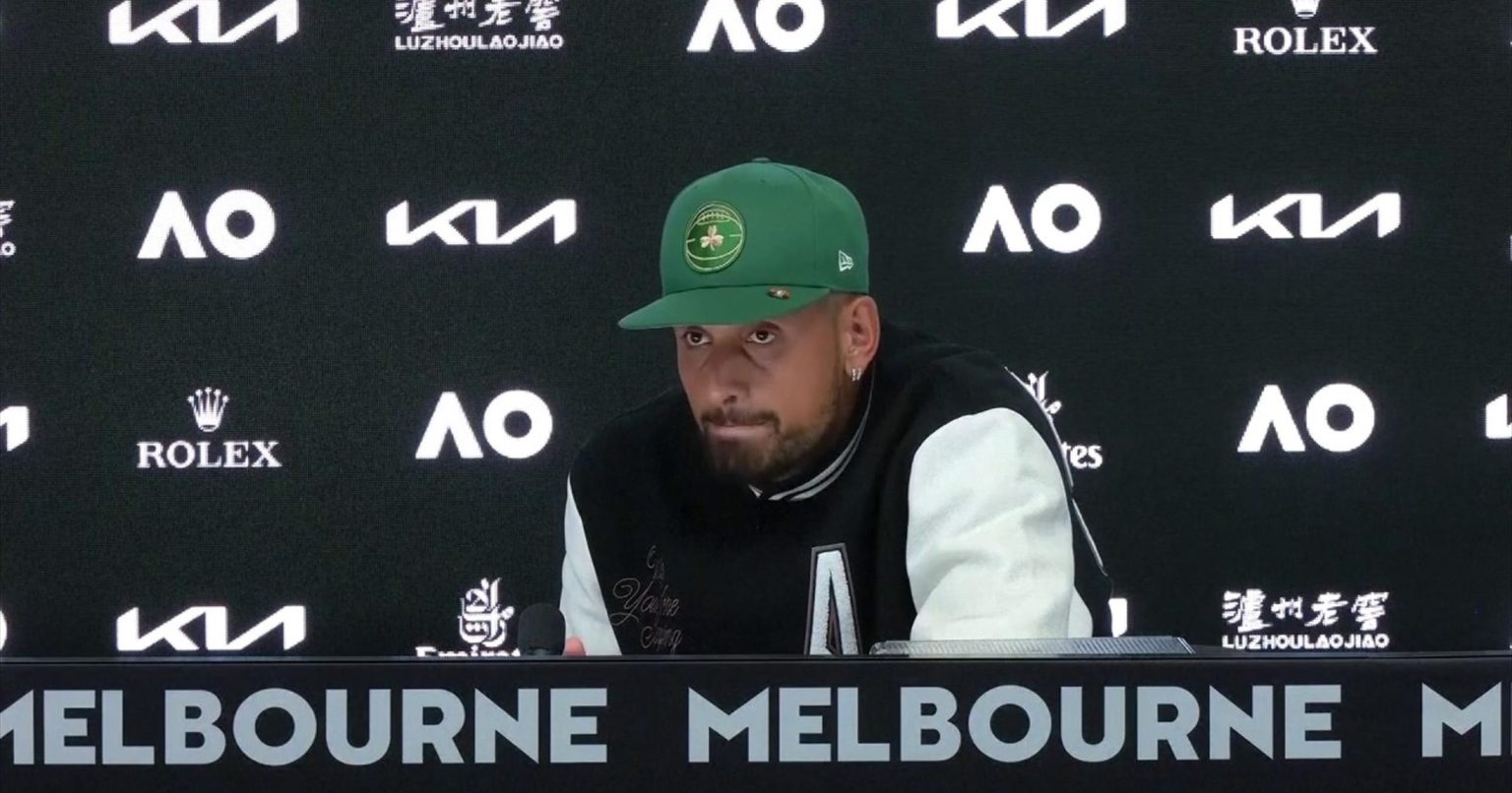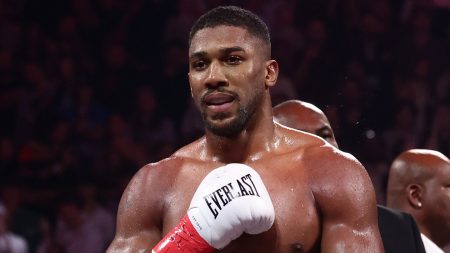Nick Kyrgios’s shocking first-round exit at the 2025 Australian Open against relative unknown Jacob Fearnley sent ripples through the tennis world, not just for the upset itself, but for the enigmatic Australian’s cryptic post-match comments hinting at a potential retirement. The loss, a stark contrast to his previous year’s finals appearance, saw Kyrgios struggle with his serve and movement, displaying a shadow of the explosive power and deft touch that had once characterized his game. His uncharacteristic lack of on-court fire, coupled with his subdued press conference, fueled speculation that the 29-year-old might be contemplating an earlier-than-expected departure from professional tennis. Kyrgios’s journey, marked by both brilliance and controversy, had reached a crossroads, leaving fans and pundits alike wondering if the curtain was about to fall on a career still brimming with unrealized potential.
Kyrgios’s career has been a whirlwind of breathtaking shot-making and volatile outbursts, a duality that has both captivated and polarized audiences. From his audacious tweener winners and underarm serves to his heated exchanges with umpires and opponents, he has consistently defied convention, becoming a box office draw wherever he plays. His immense talent, evident in his victories over tennis titans like Rafael Nadal, Roger Federer, and Novak Djokovic, solidified his status as a genuine threat on any given day. However, his struggles with consistency, motivation, and self-discipline often prevented him from translating that raw talent into sustained success. The whispers of “what if?” have followed him throughout his career, echoing the sentiment that with a more focused approach, he could have achieved even greater heights.
The loss to Fearnley, a young Australian wildcard ranked outside the top 200, seemed to expose the cracks in Kyrgios’s foundation. His serve, usually a weapon of mass destruction, lacked its customary venom, and his movement around the court appeared labored. The trademark swagger and aggressive play that had defined his style were conspicuously absent, replaced by a sense of resignation and detachment. While acknowledging Fearnley’s solid performance, Kyrgios’s post-match comments shifted the focus inward, hinting at a deeper struggle beyond the immediate disappointment of the loss. He spoke of a waning passion for the game, the grind of the tour taking its toll, and a desire to explore other interests outside the confines of professional tennis.
The speculation surrounding Kyrgios’s potential retirement ignited a flurry of debate within the tennis community. Some argued that it was a classic Kyrgios move, a dramatic declaration designed to deflect attention from a disappointing performance. Others pointed to his recent foray into commentary and his growing business ventures as evidence of a shifting focus. His candid admissions about mental health struggles in the past also added another layer to the narrative, raising concerns about the pressures and demands of professional sport. Whether a genuine contemplation of retirement or a strategic ploy, Kyrgios’s words undoubtedly left a lingering question mark over his future in the sport.
The potential loss of Kyrgios would leave a significant void in the men’s game. His flamboyant style and unpredictable nature provided a refreshing contrast to the more conventional approaches of his contemporaries. He was a player who could inspire awe and frustration in equal measure, a unique talent who transcended the traditional boundaries of the sport. His absence would be felt not only in the thrilling matches he contested but also in the vibrant personality he brought to the tour. His outspokenness on issues like racial inequality and mental health further solidified his position as a significant voice within the sporting world, a role that extended beyond the confines of the tennis court.
The future of Nick Kyrgios remains uncertain. Will he rediscover the fire that once propelled him to the upper echelons of the game, or will he choose to pursue other passions and interests? His post-match comments at the 2025 Australian Open suggest a crossroads, a moment of reflection and contemplation. Only time will tell if this marks the end of an era or simply a temporary pause in a career that has been as unpredictable as it has been captivating. Regardless of his decision, Kyrgios’s legacy as a complex and compelling figure in tennis history is secure. He challenged conventions, ignited debates, and captivated audiences with his unique brand of tennis. Whether he continues to grace the courts or chooses to embark on a different path, Nick Kyrgios will undoubtedly remain a captivating figure, leaving an indelible mark on the sport and its fans.















